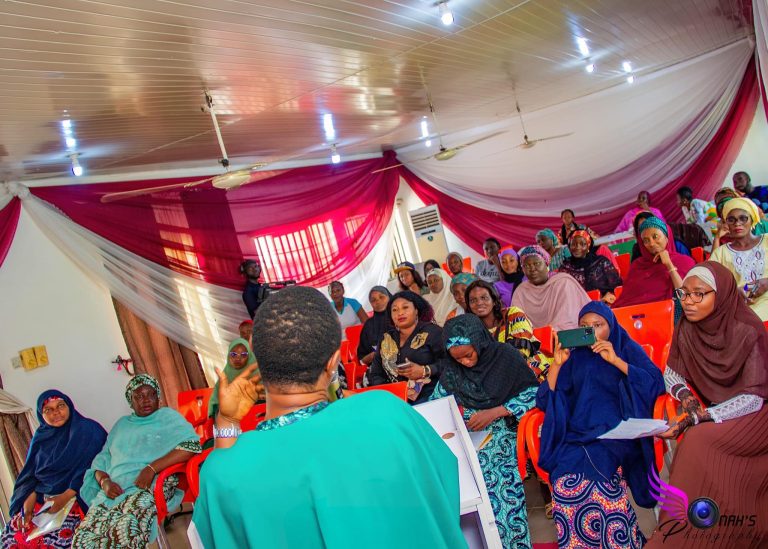By Zahra Muhammad
The Media Mentors Network on Thursday concluded the second Niger Women in the Media Summit having brought together women in the media space in Niger state for a two-day event.
The summit, which aimed to empower women journalists to take on leadership roles and also promote gender-inclusive reporting brought together veteran journalists, gender advocates as well as student journalists.
The convener of the summit, Justina Asishana, who is the Niger state correspondent of the Nation Newspaper encapsulated the mission of the summit as thus “this summit is not merely an event, but a testament to the urgency and importance of advancing women in journalism and the media, particularly in leadership positions.”
Asishana opined that there exists a gap in mainstreaming gender in the media.
“Our stories, perspectives, and experiences often find themselves relegated to the sideline. It is high time we change this narrative by ensuring that gender isn’t just a category but an integral part of every story.”
She said that women were currently underrepresented in editorial positions and news coverage.
This summit, she said therefore gives women journalists the opportunity to dwell on why they still hold subordinating roles in the state media space.
The summit featured panel discussions and interactive sessions, providing a platform for participants to share experiences and insights into the challenges that affect them.
Topics discussed spanned from the challenges of discrimination and gender bias, navigating leadership as a woman in media, and amplifying the voices of women in the media.
The summit equally featured a practical workshop on gender-sensitive reporting and another on self-care and well-being for women journalists.
The keynote speaker, who is also the Special Adviser to the Niger state governor on Print Media, Aisha Wakaso shared her journey in journalism and also discussed the challenges she overcame to achieve the feat which is her current position.
Wakaso encouraged women in media to not only demand equality but also ensure that they are worthy of such a position by way of experience and qualification.
She said that until women decide to be intentional about breaking barriers, they will continue to be relegated to the backseat.
“If we can do away with the numerous challenges inflicted on us by us, we can begin to talk about attaining leadership roles.
“Female journalists should set standards for themselves. Don’t always think the men can do better than you. Some of us can do better than them but unfortunately, we don’t have the environment to thrive,” she said.
A lecturer with the mass communication department at the Ibrahim Badamasi Babangida University, Lapai, Safiya Kaka stressed that women journalists often have to suppress the challenges posed by male domination in the media, in addition to cultural and societal stereotypes.
“They (men) don’t even want us there because they feel this is their inheritance, they must hold on to it.”
But despite these recommendations, women journalists will continue to be marginalized until they are ready to not just demand equality from their male counterparts but must prove that they can deliver on such very important assignments that come with leadership positions.
“Are we ready? Are we there for our fellow women? These are questions women should ask themselves,” Kaka said.
The Niger Women in Media conference not only drew the attention of women in the media to the need to promote inclusivity in their reports but also exposed the need for female journalists to put in more effort to ensure gender equity in the media space.
This summit paved the way and served as a medium for female journalists to also review the consequences of their actions and inactions to the agenda of promoting gender mainstreaming.
For many participants, this summit was the much-needed avenue for journalists to re-examine their efforts at promoting gender mainstreaming and most importantly, the worth of their efforts in the state’s media space.
“This forum brought all of us together: from journalists considered to be from the past, those in the present, and even those to come in the future. This is a perfect opportunity for us to get it right,” said Celine Moses Alkali, CEO of Elina Media.
At the end of the event, the organizers awarded grants to two female journalists to pursue a gender-focused story.


